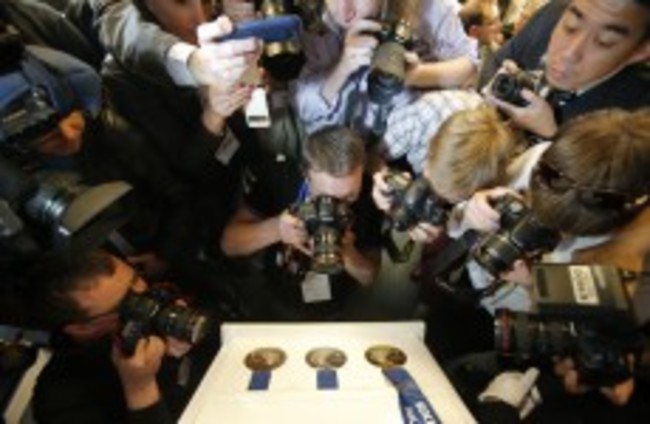1. “Someday soon, [England] may reach the end of yet another Ashes series, yet another seven-match extravaganza against India, and realise with a start that there is no one else to play.”
Jonathan Liew worries about the future of Test cricket in the Telegraph.
2. “In practical terms, a £35m budget should still be enough for Anzhi to challenge for European places, but it has meant the end for Meulensteen, laid off after 16 turbulent days in the job (presumably soon to be the subject of a David Peace-Danny Boyle collaboration, 28 Days Shorter), and it also means that the highest-paid stars are likely to be offloaded.”
The fall-out from Anzhi Makhachkala’s financial problems could lead to Sammy Eto’o joining Chelsea writes Jonathan Wilson in The Guardian.
3. “Two weeks before the Super Bowl, an incensed Young tweeted, ‘I never been selfish but if I’m not going to get the football i don’t want to play anymore.’ Two weeks later, and with two years left on his four-year, $4.6 million contract, the Lions severed ties with Young.”
Robert Klemko ponders on the rise and fall of Titus Young on Peter King’s new site, Monday Morning Quarterback
4. “Red or Dead seems intended as his magnum opus – the kind of big book a big novelist produces mid-career. It tackles a great figure, Shankly, who has been fading into myth. The Scot took over Liverpool football club in 1959, led it from the second division to English titles and, after his retirement in 1974, watched it start winning European Cups.More than that, though, Shankly honoured Liverpool’s fans. He felt that everything he and his players did was for the supporters. That emotional connection, for Peace, proves his sainthood.”
Simon Kuper in the Financial Times is not a fan of David Peace’s new book on Bill Shankly.
5. “For club owners, the sizable appearance fees paid by U.S. promoters create the greatest incentive. Mexican professional clubs can fetch a few hundred thousand dollars per match, with top-tier international like Manchester United, F.C. Barcelona and Real Madrid netting as much as $2.5 million per match, according to several sources within the American soccer industry.”
What do Premier League clubs get out of friendlies in the US asks Frederick Dreier in the Wall Street Journal.
6. “That Miami is the most compelling college football dynasty of the late 20th century is not in dispute here; and I say this as someone who grew up in central Pennsylvania, the nexus of self-righteous Hurricane hatred.
One could argue — as others have — that in winning the way they did, the Hurricanes broke down racial stereotypes, and that they inexorably altered the stylistic elements of college football, and that they may have even helped the city of Miami to heal itself amid a decade of turmoil.”
Grantland’s Michael Weinreb on the end of a footballing dynasty.

